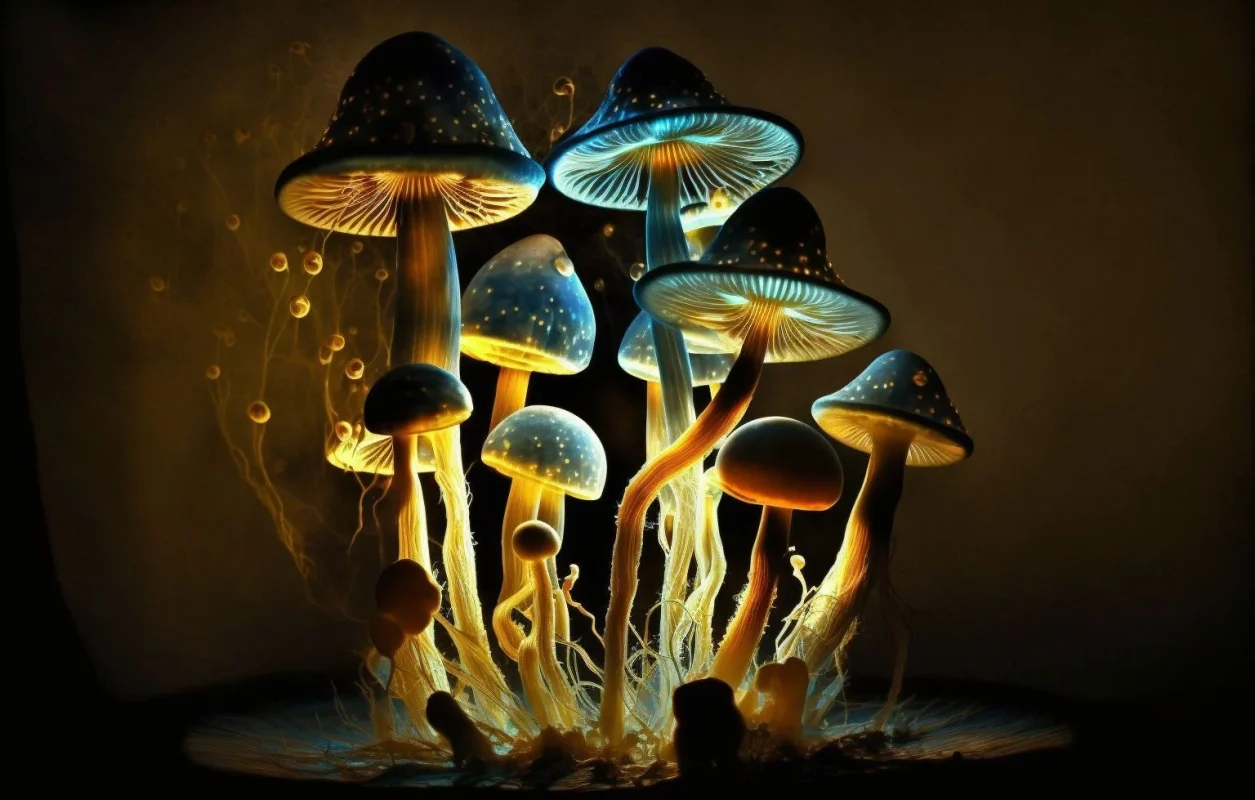CBD, Magic Mushrooms, Psilocybin
Psilocybin Supplement Myths—Debunked with Science
The world of natural supplements is saturated with claims, rumors, and persistent myths, especially around trending substances like psilocybin, cannabis, CBD edibles, and even psychedelic teas. Here, we dissect some of the most common misconceptions about psilocybin supplements, drawing evidence-based lines between fact and fiction. Where appropriate, parallels are made to cannabis, CBD edibles, and tea to illuminate how misinformation spreads across all these domains.
Myth 1: Psilocybin Supplements Are Highly Addictive
Reality:
Unlike substances such as opioids or alcohol, psilocybin does not foster physical dependence or addiction in the classical sense. Studies and large-scale surveys show a very low risk profile for physical addiction. In fact, the body rapidly develops tolerance, making addiction difficult to sustain. Some research even suggests psilocybin may aid in breaking addictions to other substances.
Contrast with Cannabis and CBD Edibles:
Cannabis can be habit-forming for some users, especially those consuming high-THC strains, while CBD edibles do not induce addiction or intoxication. CBD is non-psychoactive, and established research affirms it does not produce a “high”.
Myth 2: All Mushrooms and Psilocybin Supplements Are the Same
Reality:
There are over 100 species of psilocybin-containing mushrooms, and they vary widely in potency and effect, owing to different concentrations of active molecules (psilocybin, psilocin, and others). This is comparable to how cannabis strains differ in their levels of THC, CBD, and terpene profiles.
CBD Edibles Parallel:
It’s misleading to assume all CBD products are identical—source, extraction method, and formulation drastically impact effectiveness, mirroring the variability found among mushroom types.
Myth 3: Mushroom Supplements and Psychedelic Teas Have No Therapeutic Potential
Reality:
Increasing evidence now supports psilocybin’s value in treating depression, PTSD, addiction, and anxiety when properly administered in controlled settings. Psychedelic teas—such as magic mushroom tea or ayahuasca—have long histories in traditional medicine and are being re-examined in modern scientific research for their therapeutic uses.
Cannabis & Tea Connection:
Similar skepticism once shrouded medical cannabis and various herbal teas. Today, scientific evidence attests to the medical use of both cannabis and green tea for specific conditions, though unregulated or excessive intake can carry risks.
Myth 4: Psilocybin Supplements Cause Permanent Brain Damage or Psychosis
Reality:
Research has found no solid evidence that responsible, moderate use of psilocybin leads to permanent brain damage. Short-term effects may include hallucinations and altered perception, but these are temporary, and brain function returns to baseline after the experience ends. Instances of lasting psychosis are exceedingly rare and usually confined to individuals with pre-existing conditions.
Context in Cannabis & Tea:
The misconception that cannabis or even green tea can “fry your brain” persists, despite little to no evidence for moderate or therapeutic use. Caution is warranted mainly for misuse or unsupervised self-medication, especially with potent or unregulated products.
Myth 5: “Natural” Teas or Edibles Are Always Safe and Risk-Free
Reality:
Not all teas or edible products are inherently benign. Herbal or psychedelic teas (such as mushroom or ayahuasca tea) can have psychological and physiological effects—sometimes therapeutic, but also potentially harmful if used without knowledge or supervision. There are documented cases of adverse reactions to certain herbal teas, including psychosis with high-dosed St John’s Wort tea. Similarly, unmeasured cannabis edibles can result in overconsumption and uncomfortable psychoactive episodes.
Myth 6: CBD Edibles Get You High (Just Like Psilocybin or Cannabis Edibles)
Reality:
CBD (cannabidiol) is molecularly distinct from THC (tetrahydrocannabinol) and psilocybin, and does not cause intoxicating or hallucinogenic effects. Despite being derived from the cannabis plant, CBD edibles induce relaxation and pain relief without the “high” or sensory distortions associated with THC or psilocybin.
Table: Quick Comparison of Myths and Realities
| Substance | Myth | Scientific Reality |
|---|---|---|
| Psilocybin supplements | Highly addictive | No classical addiction; may help treat addictions |
| CBD edibles | Get you high like THC or psilocybin | Non-psychoactive, no intoxication |
| Psychedelic tea | Unsafe or always safe | Can be risk or therapeutic; dose and context matter |
| Cannabis | All forms are equally potent/risky | Wide variability; dosage and type matter |
| Mushroom supplements | Cause permanent brain damage | No evidence in moderate use; effects temporary |
Final Thoughts
The myths around psilocybin supplements often mirror those of cannabis, CBD edibles, and various herbal teas: claims swing wildly between alarmism and miracle-cure hype. Science urges us to see the nuances: potencies vary, risks depend on dose and context, and no “natural” product is automatically safe or harmful. Educated, measured use is key—whether you’re exploring psilocybin, sipping chamomile, or trying a CBD brownie.
Ultimately, dispelling myths with evidence not only leads to safer practices but also unlocks the true potential of these fascinating supplements for health and well-being.
Add to follow-up
Check sources
Share
Export
Rewrite

